A new object and material theatre performance tells stories from Sunderbans with the help of traditional and contemporary clay dolls created by doll artists from West Bengal
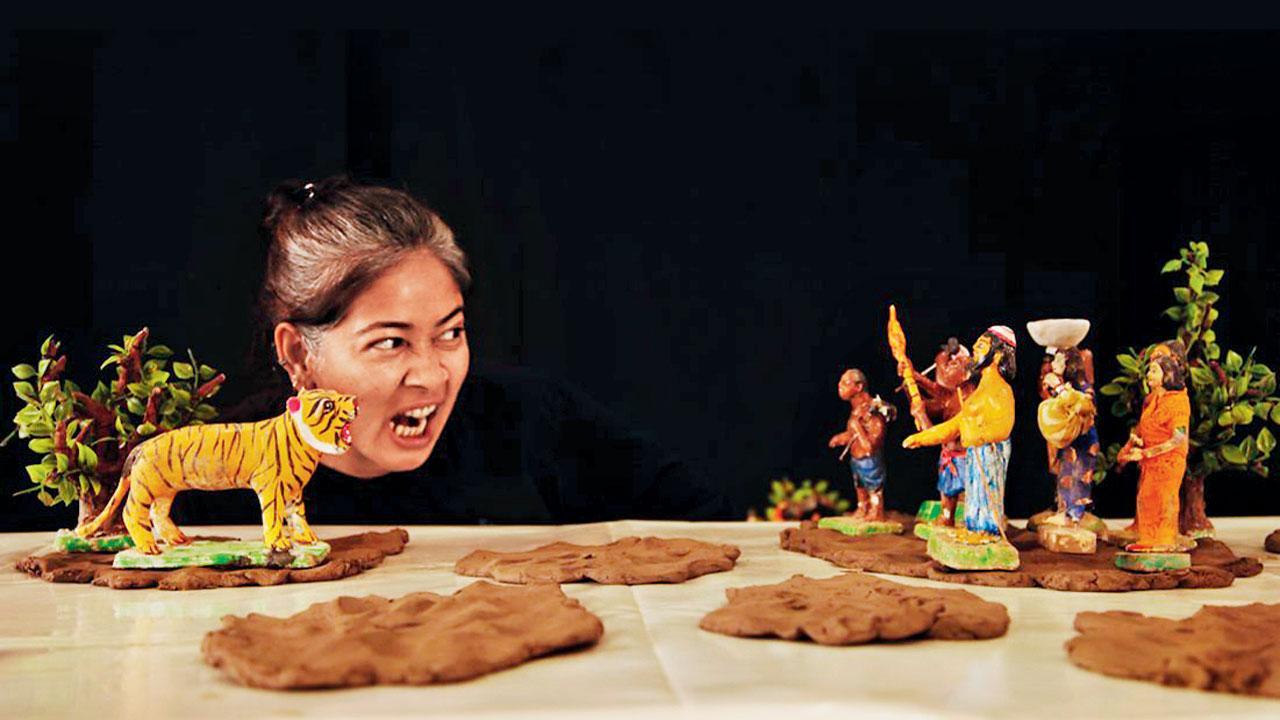
Representation Pic
The hinterlands of India are a treasure trove of craft and stories, and West Bengal is no exception. In the Sunderbans, shrouded in mystery and folklore, stories of Bonbibi — the guardian spirit of the forests, revered by all its inhabitants irrespective of their religious beliefs, are told, and passed on from one generation to another. The artists who reside in this forest make mud and clay dolls that tell traditional stories of Bonbibi and contemporary stories of life as they see around them. Tram Arts Trust’s play Maati Katha, directed by Choiti Ghosh and Mohammad Shameem, brings these stories to life, using the unique dolls created by local artists from the Sunderbans.
ADVERTISEMENT
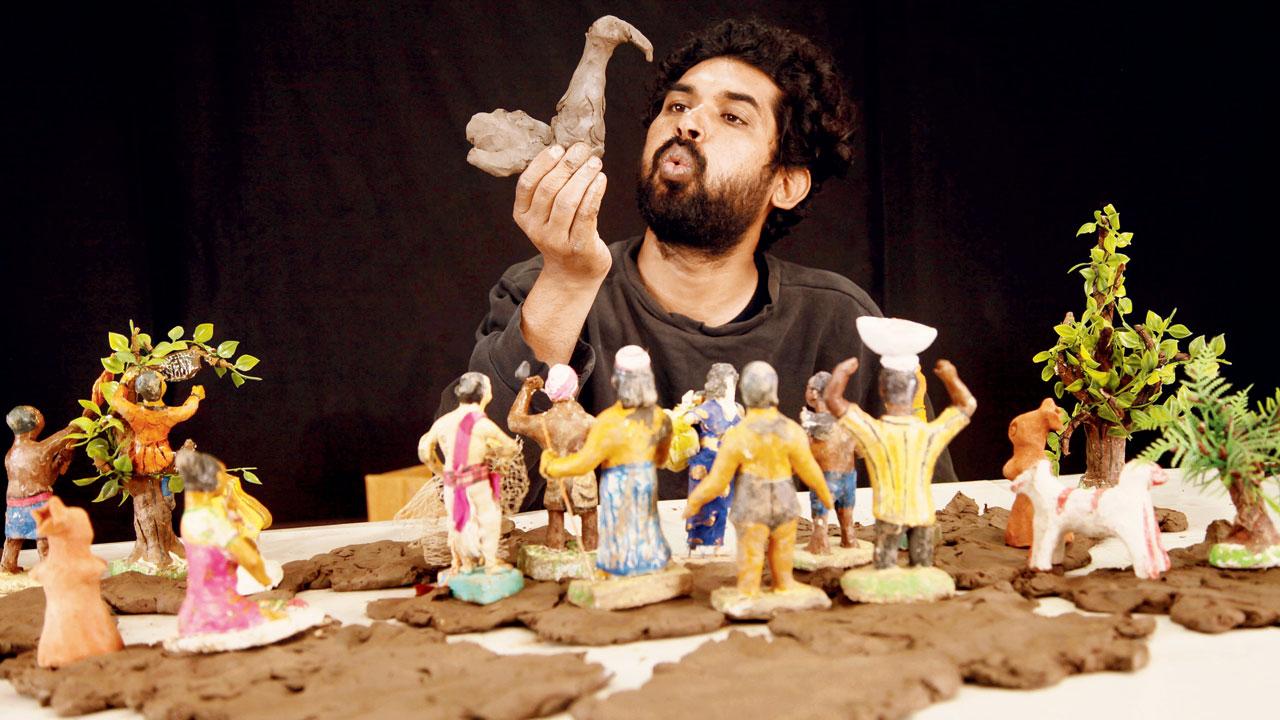
Mohammad Shameem performs; (left) Choiti Ghosh with the traditional dolls
“Life in the Sunderbans has always been difficult. The struggle between land and water, forest and field, domestic and wild, human and non-human, has always existed. As each stakes their claim on the other, and encroaches upon the other’s space, survival here is possible only through stories and beliefs,” says Ghosh. “It is an unusual place. Nothing in Sunderbans can be called traditional, because of its history of waves of migration. The people and the arts of Sunderbans are quite marginalised, the flora and fauna having gotten more attention than them,” she explains.
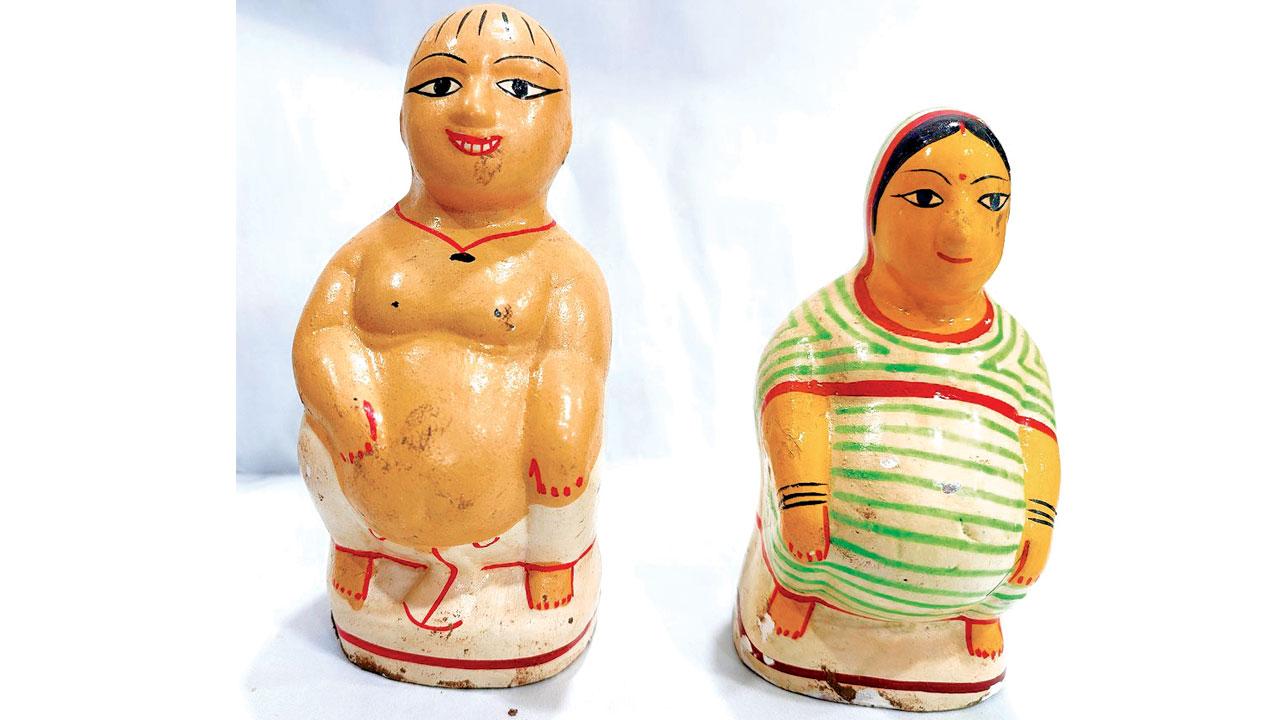
Ahlad-Ahladi Putul of the Joynagar Majilpur tradition
The play had a digital premiere at the Edinburgh Fringe Festival in August last year. It draws inspiration from Bonbibi Jatrapala — a dramatic performance tradition connected with the worship of the cult goddess, Bonbibi and music traditions like Bhatiyali (a river folk song sung by boatmen), Baul (folk music of mystics) and Jhumur (tribal music from Western frontiers of Bengal like Purulia, Bankura, Bardhaman, Birbhum and West Medinipur). Ghosh had read about the doll makers of Sunderbans that became the roadmap for the play. “When we reached the village, they said we don’t make the dolls anymore, because they don’t sell, are easily breakable and can’t compete with plastic toys. However, the villagers agreed to make them on order; 30 were made after I requested them to make one each of every type of doll that they had ever crafted,” she says.
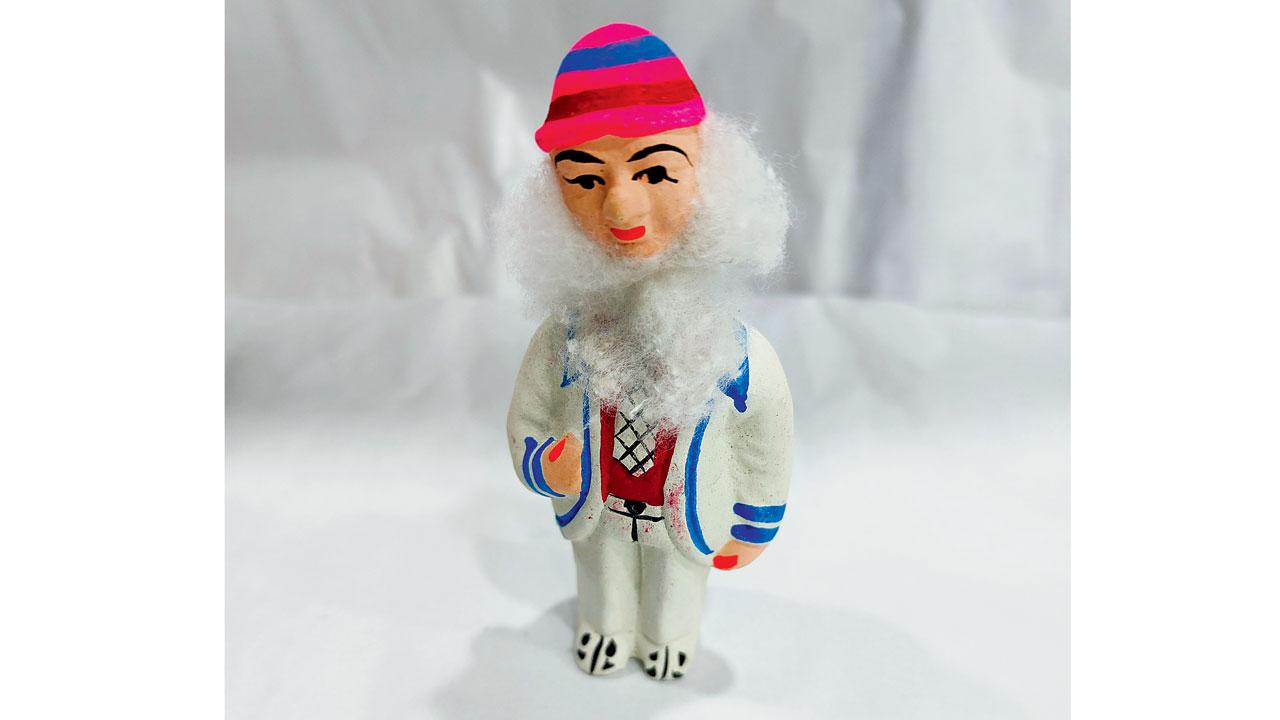
Ghar nara buro (head-bobbing old man) of the Jhulan Putul tradition by Arati Pal of Nimta
Ghosh, a puppeteer, who studied Object Theatre in France, was keen to present it in an Indian context. A gift of 250-year-old dolls from her aunt, which had been part of the family heirloom, sparked her interest in the doll arts of West Bengal. The plays came to life as part of a three-year ongoing ethnographic project that researches traditional and contemporary doll-making practices in the state, and is narrated in English and Hindi by Ghosh and Shameem. The songs are in Bengali but translated handouts are given for the Bangla sections. The 65-minute-long play explores the history of oral traditions, myths, folklore and the linkages of tangible and intangible heritage conservation to rural Bengal’s doll-making practices.
The performance will be accompanied by an exhibition that offers a glimpse into West Bengal’s continuing doll traditions, their rich stories and artists, many of whom are struggling to keep their arts and their livelihoods alive. “Bengal has many doll villages, including Panchmura, Natungram and Kanthalia. While 28 forms of doll art are supported by the state government, over 50 forms exist,” she adds.
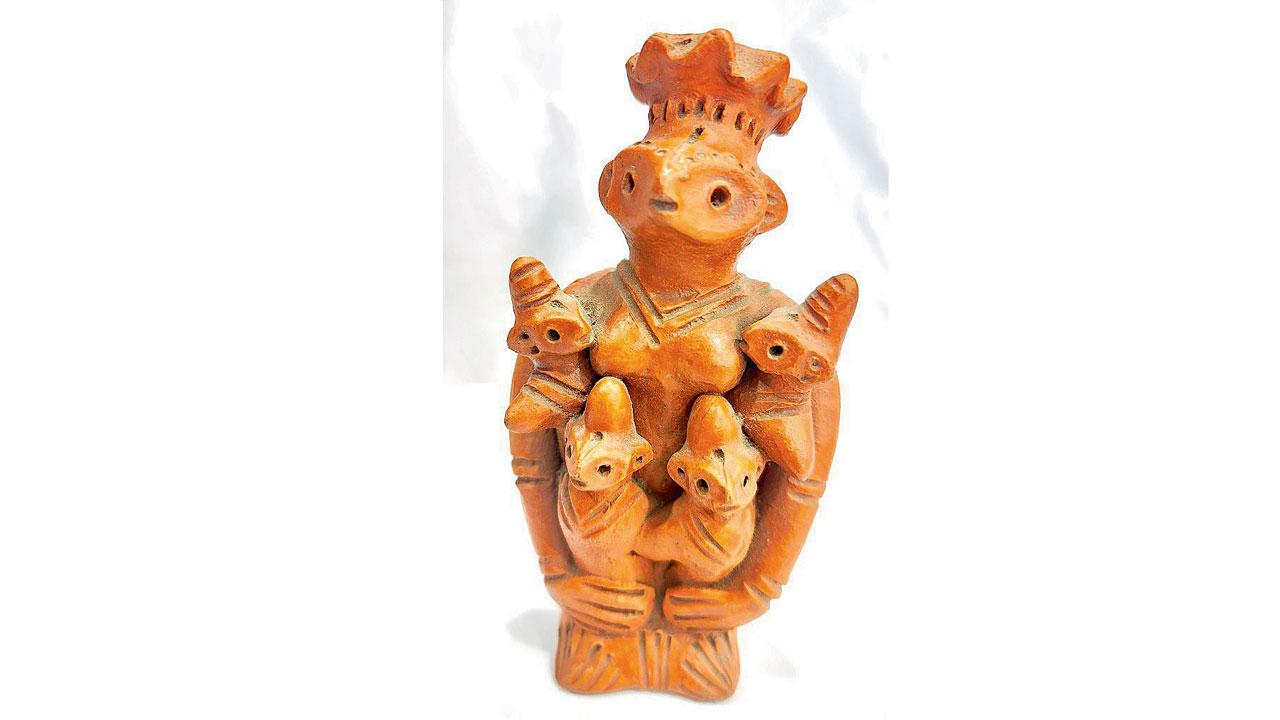
Shoshthi Putul
The exhibition will see works from different artists, including a 74-year-old doll-maker in Kanthalia, who is the last practising artist of a particular form, which is about 1,600 years old. “In the 1980s, when the West Bengal government and Archaeological Survey of India [ASI] began excavations in Karnasubarna, two kilometres from this village, because it was the capital of the kingdom of Raja Sasanku, they found terracotta dolls that were exactly like the dolls that the village artists make at home today,” reveals Ghosh.
“We met a fourth-generation doll artist who was dissatisfied with the traditional way in which the doll’s eyes are made. He has made about 250 varieties of doll eyes, and is somewhat satisfied with his most recent creation. In another tradition from Mojilpur, an eighth-generation artist of his tradition knows that his daughter who is currently four years old, will be the first woman in the ninth generation after only male artists in all the previous generations in that tradition,” adds Ghosh.
On: January 11 to 14
At: Harkat Studios, Aram Nagar part 2, Versova, Andheri West.
Log on to: insider.in (for tickets and time slots)
Entry: Rs 500 (performance and exhibition); Rs 100 (only exhibition)
 Subscribe today by clicking the link and stay updated with the latest news!" Click here!
Subscribe today by clicking the link and stay updated with the latest news!" Click here!







